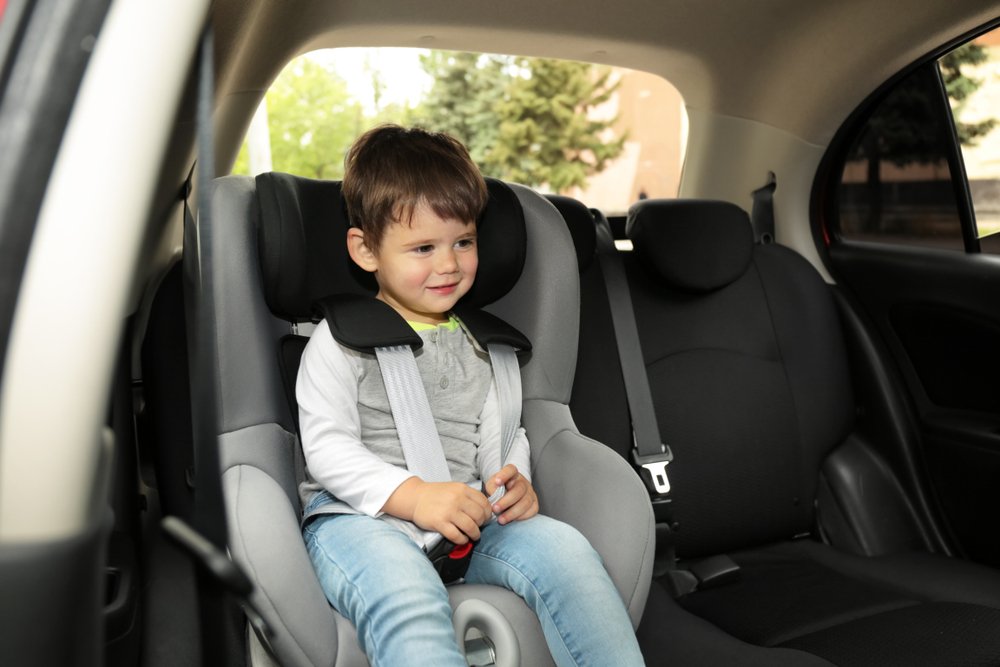ARS 28-1383(A)(3) is the Arizona statute that makes it an aggravated DUI if a motorist drives under the influence while transporting a child under the age of 15. A violation of this code section is a Class 6 felony. The crime may be punishable by a mandatory minimum jail term of up to 180 days and/or a maximum fine of $4,000.
Examples
- driving a car with a .09% blood alcohol concentration (BAC) and having a baby in the motor vehicle.
- a parent driving a 13-year-old son to a sports game while guilty of drunk driving.
- a nanny operating a vehicle while intoxicated and having a child in the car.
Defenses
DUI defense attorneys draw upon several legal strategies to help people contest criminal charges under this law. A few common examples include defense lawyers showing that:
- the defendant did not have a child passenger,
- the accused was not under the influence, and/or
- police stopped the accused without probable cause.
Penalties
A violation of this law is a Class 6 felony (as opposed to a misdemeanor offense).
Penalties can rise to the level of:
- at least 180 days in jail time,
- a maximum fine of $4,000, and
- a minimum 1-year driver’s license suspension.
In this article, our Phoenix Arizona criminal defense attorneys/DUI defense lawyers will discuss what the law is under this statute, defenses available if charged, the penalties for a conviction, and related crimes.

Under ARS 28-1383(A)(3), people are guilty of an aggravated DUI if they drive under the influence while transporting a child under the age of 15.
1. How does Arizona law define “aggravated DUI charges with children in the car”?
A prosecutor must prove the following elements to successfully convict a driver under ARS 28-1383A3:
- the defendant drove or was in actual physical control of a motor vehicle while under the influence (of alcohol and/or drugs), or
- the defendant drove or was in actual physical control of a vehicle with blood alcohol content above the legal limit of .08%, and
- the accused had a passenger in the vehicle that was under the age of 15.1
2. Are there defenses to allegations of this crime?
People accused of a crime in these DUI cases can challenge the accusation with a legal defense. Three common defenses include defendants showing that:
- they did not have a child passenger.
- they were not under the influence.
- authorities stopped them without probable cause.
2.1. No child passenger
Under Arizona DUI laws, people are only guilty under this statute if they drive with a passenger under the age of 15. Defendants, then, can avoid guilt by showing that either:
- they did not have a passenger in their vehicle, or
- any and all passengers were 15 years or older.
2.2. Not under the influence
Recall that an accused is only guilty of a DUI offense under this statute if he/she drove with a child passenger while under the influence. Therefore, an accused can avoid a DUI conviction by showing that he/she was not under the influence.
2.3. No probable cause
This is a common defense in Arizona DUI cases. It is unlawful for law enforcement to stop or perform a DUI arrest of a person without probable cause that they committed some illegal act. If there is not probable cause, then a defendant can seek to exclude any evidence the police gathered after the unlawful stop. A defense, then, is for defendants to show that the police stopped them without probable cause.
3. What are the DUI penalties?
Driving under the influence with a child passenger under 15 years old is a DUI charge classified as a Class 6 felony. The prison term for the offense depends on the defendant’s BAC level at the time of the arrest:
| BAC Level | Mandatory Minimum Jail Time |
| .08% to .149%
(Impaired or Per Se DUI) |
First offense: 10 days
Second or subsequent offense: 90 days |
| .15% to .199% | First offense: 30 days
Second or subsequent offense: 120 days |
| .20% or higher | First offense: 45 days
Second or subsequent offense: 180 days |
A judge also has the discretion to impose the following penalties in these felony DUI cases:
- up to $4,000 in fines,
- a minimum 1-year driver’s license suspension,
- alcohol or other drug screening, education, or treatment,
- minimum 24 months of driving with an ignition interlock device (IID),
- a traffic survival school course, and
- forfeiture of the vehicle.2
4. Are there related offenses?
There are three crimes related to DWI with a passenger under 15. These are:
- DUI – ARS 28-1381A1,
- contributing to the delinquency of a minor – ARS 13-3613, and
- endangerment – ARS 13-1201.
4.1. DUI – ARS 28-1381A1
Under ARS 28-1381A1, DUI is the offense where someone drives or is in actual physical control of a motor vehicle while under the influence of:
- alcohol,
- drugs,
- a vapor releasing substance containing a toxic substance, or
- any combination of liquor, drugs, or vapor.
Unlike with aggravated DUI, a first offense under this statute is a misdemeanor DUI. The criminal law that says that people guilty of DUI can face:
- jail time,
- a 90-day driver’s license revocation,
- an IID for 1 year,
- drug and alcohol screening, education, or treatment,
- traffic survival school course, and/or
- possibly community service.
4.2. Contributing to the delinquency of a minor – ARS 13-3613
Under ARS 13-3613, contributing to the delinquency of a minor is the crime where people commit an act that tends to debase or injure the morals, health, or welfare of a child.
As with charges under ARS 28-1383A3, people can contest charges under this law with the defense that police stopped or arrested them without probable cause.
4.3. Endangerment – ARS 13-1201
Per ARS 13-1201, endangerment is the crime where people recklessly put someone at risk of imminent death or physical injury. If the “victim” of the crime is a child, the offense is commonly referred to as “child endangerment.”
Depending on the facts of a DUI with a child passenger case, the defendant could face charges under both:
- ARS 28-1383A3, and
- ARS 13-1201.
For additional help…

Call us for help
For additional guidance or to discuss your case with a criminal defense lawyer, we invite you to contact our law firm/law offices at the Shouse Law Group. Our legal team provides both free consultations and legal advice you can trust.
- Arizona Revised Statutes 28-1383A3. See also State v. Olquin, 216 Ariz. 250 (Ariz. Ct. App. 2007).
- See ARS 28-1383.
